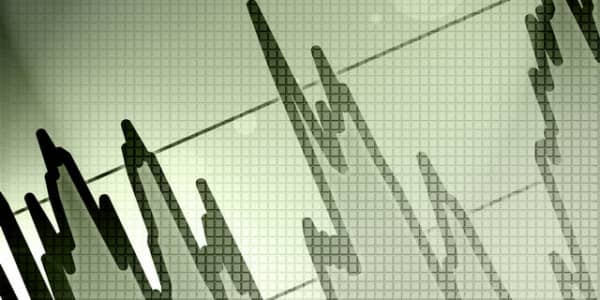A rise in bond yields will pose a serious threat to the U.S. equity market at a time when earnings momentum remains weak, Societe Generale warns.
The French lender predicts that the will be flat "at best" for the coming quarters with a continued risk of a short-term correction.
"Rising bond yields during period of economic recovery are not necessarily bad for equities. However, at a time when earnings momentum remains weak and the consensus earnings growth estimate is expected to moderate, rising bond yields could be a catalyst for a U.S. equity market correction," a strategy team led by Alain Bokobza at Societe Generale, said in a research note on Friday.
(Read More: Stand by…a hefty drop's on the way: Nomura's Janjuah)
If the U.S. Federal Reserve, as expected, starts to wind-down its bond-buying program, the price of U.S. Treasurys are expected to fall as a big source of demand drops off. This will send the yields on the bonds higher, as bond prices and yields move in the opposite direction.
SocGen expects U.S. government bond yields to approach 4 percent by December 2014. But the bank also suggests a U.S. government bond yield of between 3-3.5 percent could trigger a correction of between minus 12-22 percent for U.S. equities on the current equity risk premiums.
On Friday, yields for U.S. Treasurys rose to 2.740 percent, from 2.6018 percent late on Thursday, after unexpectedly strong job gains for October despite a partial government shutdown, suggesting resilience in the world's biggest economy.
(Read More: Global equities to rally another 13 percent by end-2014: Citi)
Employers added 204,000 jobs to payrolls, the Labor Department said, sharply above expectations from economists in a Reuters poll for a gain of 125,000.

"The Fed will eventually bring tapering back on the agenda in 2014. After all, does real GDP (gross domestic product) growth of 2.8 percent in the last quarter really deserve not only zero rates but also active monetary injection?," ScoGen said.
"Those saying that an economic acceleration would translate into higher returns on equity are very probably wrong."
The bank's view correlates with a bearish projection from Nomura strategist Bob Janjuah last week. He said in a client note on Tuesday that he expects a 25-50 percent sell-off over the last three quarters of 2014 in global stock markets. Steen Jakobsen, chief economist at Saxo Bank has explained on several occasions to CNBC in recent weeks that bullish investors are "chasing the tail" of the recent equity rally, indicating that now is not the time to be risky.
(Read More: 'We like equities broadly': JPM Private Bank)
The S&P 500 Index sat at 1,770 points on Friday evening, 24 percent higher it was than at the start of the year. Liquidity pumped into capital markets is seen by many as being the major reason behind this push higher for stocks. The U.S. Federal Reserve's $85 billion-a-month asset purchases has run alongside similar programs in the U.K. and Japan. The U.K. FTSE 100 Index has added 14 percent year-to-date whilst Japan's Nikkei 225 has logged a staggering 37 percent rise despite the odd stutter.
But there are some that still predict an upside for U.S. equities. Barclays introduces a 2014 year end S&P 500 price target of 1,900 on Friday, whilst Citigroup said on Friday that equity markets around the world have got about another 13 percent to go by the end of 2014.
"Global equities aren't as cheap as they were in 2011, but that doesn't mean that they are yet especially expensive," Citigroup said in a report on Friday.
By CNBC.com's Matt Clinch. Follow him on Twitter @mattclinch81





